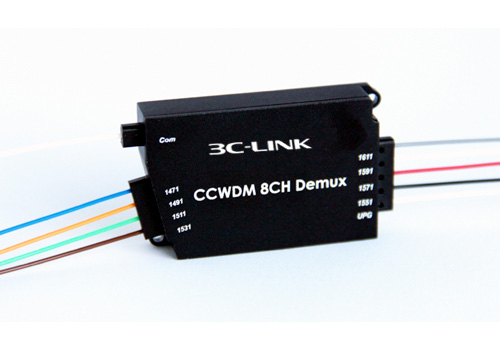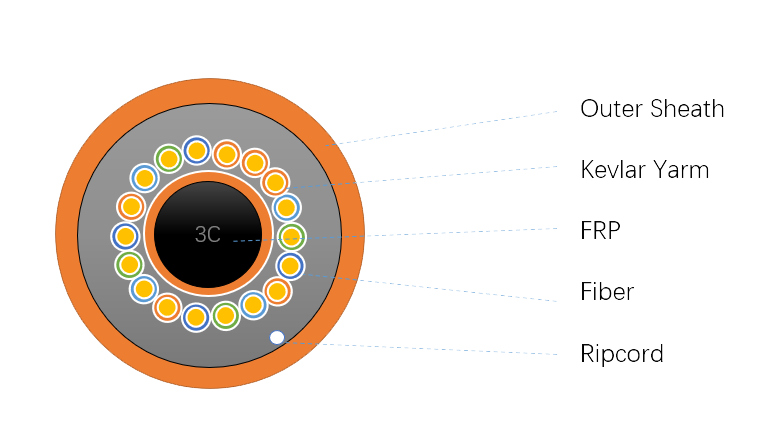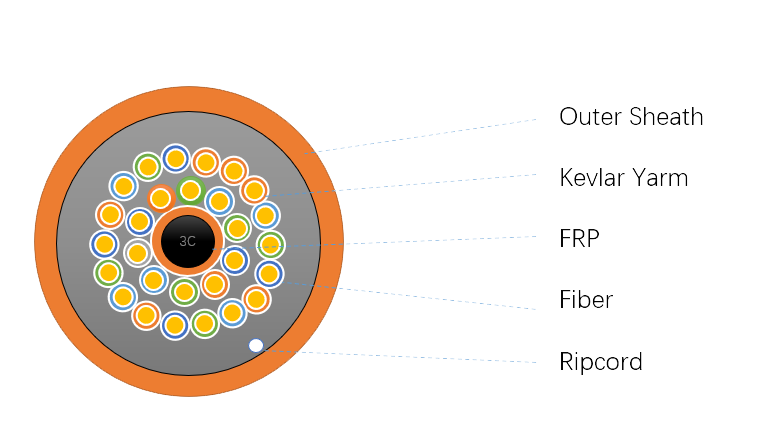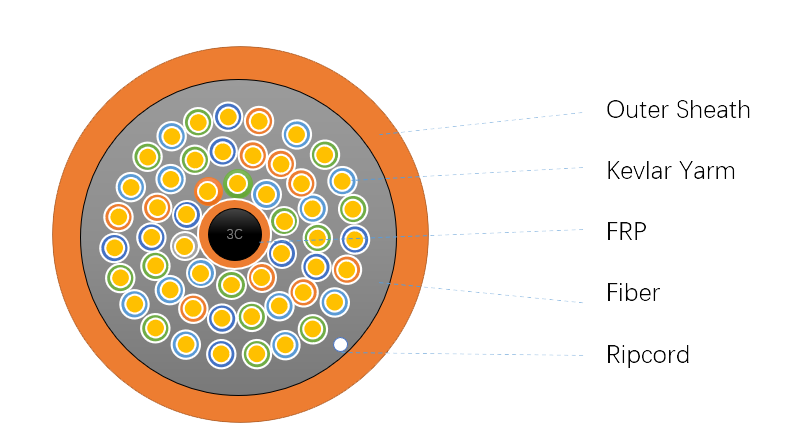
CCWDM Module
4-48 Cores Indoor Fan-out Cable( GJBFJY) indoor cable, each with its own Jacket and all of them surrounded by one common jacket. Breakout cables are designed for convenient installation of Fiber Optic Connectors but tend to have high Transmission losses due to bends in the fibers.
Breakout cables are designed for convenient installation of Fiber Optic Connectors but tend to have high Transmission losses due to bends in the fibers.
The indoor multi-core Fan-out optical cable is made of multiple colored optical fibers as the optical transmission medium, covered with a layer of aramid fiber as the stress strengthening unit, and extruded with a layer of polyvinyl chloride (PVC) or low smoke zero halogen material (LSZH, low smoke, halogen-free and flame retardant) sheath.
| 4-12 Cores |
 |
| 16-24 Cores |
 |
| 36-48 Cores |
 |
· Breakout fiber optic cable is the ideal choice for installation where direct termination of fiber connector to sub-units and a direct run to fiber patch panels is desired.
· It is used for rugged applications where maximum physical and environmental protection is needed.
· The design of each fiber individually reinforced allows breakout cable for quick termination to connectors and not require patch panels or boxes. · Breakout cable can be more economic where fiber count isn’t too large and distances too long, because it requires so much less labor to terminate.
· Tight-buffered cable has gained much popularity with quick termination and low installation cost.
· Breakout and distribution cable are two common types of tight-buffered cable that we have discussed in the text above from the aspects of structure, cable type and application, which can help you to choose the right tight-buffered cable for your need.
|
Model |
Cable Diameter (mm) |
Cable Weight (kgs) |
Tensile Strength (N) |
Crush Strength (N) |
Min. Bending Radius |
Temperature Range (℃) |
|||
|
Long term |
Short Term |
Long term |
Short Term |
Long term |
Short Term |
||||
|
3C-GJBFJY-4 |
7.5 |
45 |
200 |
400 |
300 |
1000 |
10D |
20D |
-20~+60 |
|
3C-GJBFJY-6 |
8.5 |
50 |
250 |
600 |
300 |
1000 |
10D |
20D |
-20~+60 |
|
3C-GJBFJY-8 |
10.0 |
91 |
300 |
800 |
300 |
1000 |
10D |
20D |
-20~+60 |
|
3C-GJBFJY-12 |
12.5 |
145 |
400 |
1000 |
300 |
1000 |
10D |
20D |
-20~+60 |
|
3C-GJBFJY-24 |
15.5 |
178 |
800 |
2200 |
300 |
1000 |
10D |
20D |
-20~+60 |
|
3C-GJBFJY-36 |
17.5 |
200 |
1000 |
3000 |
300 |
1000 |
10D |
20D |
-20~+60 |
|
3C-GJBFJY-48 |
20.0 |
247 |
1000 |
3000 |
300 |
1000 |
10D |
20D |
-20~+60 |
|
Fiber Type |
Fiber Loss |
Bandwidth |
Effective mode bandwidth |
Ethernet link length |
Mi bending radius |
|||
|---|---|---|---|---|---|---|---|---|
|
Term |
1310/1550nm |
850/1300nm |
850/1300nm |
850nm |
850nm |
/ |
||
|
Typic |
Min |
Typic |
Max |
|||||
|
Unit |
dB/km |
dB/km |
dB/km |
dB/km |
MHZ.km |
MHZ.km |
m |
mm |
|
G657A1 |
0.36/0.22 |
0.5/0.4 |
--- |
--- |
--- |
--- |
--- |
10 |
|
G657A2 |
0.36/0.22 |
0.5/0.4 |
--- |
--- |
--- |
--- |
--- |
7.5 |
|
50/125 |
--- |
--- |
3.0/1.0 |
3.5/1.5 |
≥500/500 |
--- |
--- |
30 |
|
62.5/125 |
--- |
--- |
3.0/1.0 |
3.5/1.5 |
≥200/500 |
--- |
--- |
30 |
|
OM3 |
--- |
--- |
3.0/1.0 |
3.5/1.5 |
≥1500/500 |
≥2000 |
≤300 |
30 |
|
OM4 |
--- |
--- |
3.0/1.0 |
3.5/1.5 |
≥3500/500 |
≥4700 |
≤550 |
30 |
|
BI-OM3 |
--- |
--- |
3.0/1.0 |
3.5/1.5 |
≥1500/500 |
≥2000 |
≤300 |
7.5 |
|
BI-OM4 |
--- |
--- |
3.0/1.0 |
3.5/1.5 |
≥3500/500 |
≥4700 |
≤550 |
7.5 |
Transportation / storage / use temperature: - 20 ℃ ~ + 60 ℃, installation temperature: - 5 ℃ ~ + 50 ℃.
3CF-SFP+-SRP
3CPG-434S1OM-LX
3CW-QSFP28-23-LR& 3CW-QSFP28-32-LR
3C-56GB-CU1M
3CI-SFP0204G
3C-OTNS8600V OTN System
3C-ONTS8600I-OLS
3C-HDMI-M4K60-T10
3C-ONU-X100W
3C-XM100DG
3C-AD-SCU

Copyright © 2022 3c-link Corporation Limited.VOKO提供网站技术支持
Privacy Policy